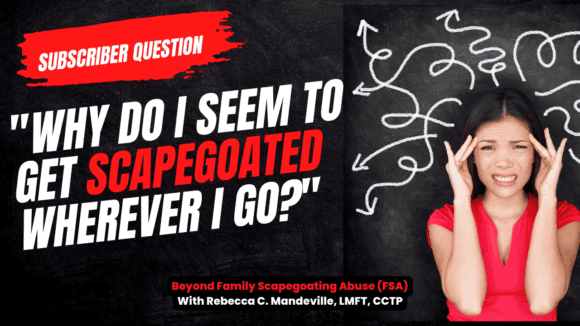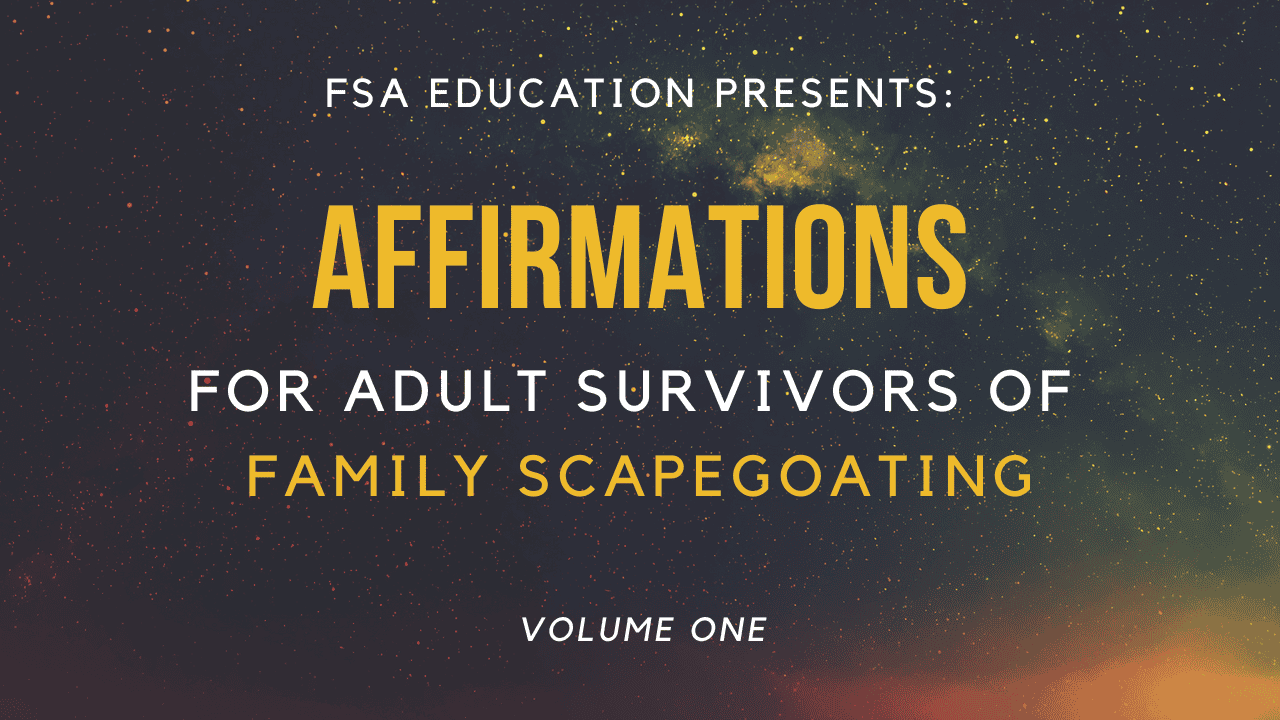“Why Do I Seem to Get Scapegoated Wherever I Go?
New Vlog Release – and announcing a new series on YouTube on my new Beyond Family Scapegoating Abuse Channel, Subscriber Question of the Week: This week’s subscriber question is, “Why do I seem to find myself in the ‘scapegoat’ role wherever I go?”




